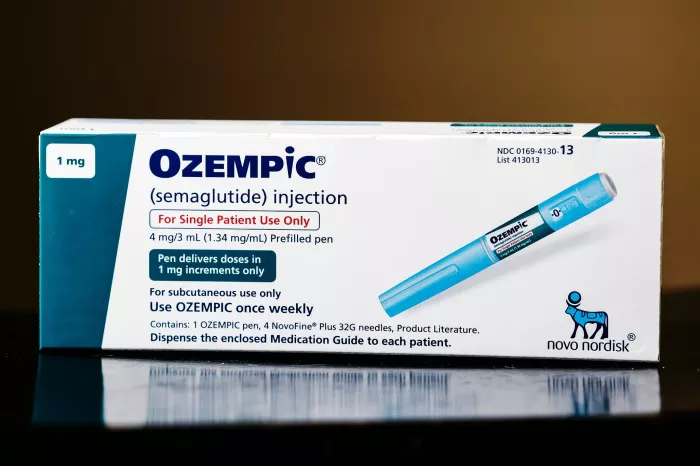Embarking on a quest for sustained energy levels involves delving into the realm of nutrition, where the role of vitamins emerges as a crucial factor. While various lifestyle elements contribute to overall energy, the impact of specific vitamins on enhancing and maintaining vitality is undeniable. In this comprehensive exploration, we navigate through the intricacies of how vitamins, in their diverse forms, become catalysts for increased energy levels, providing insights into the physiological mechanisms that underpin their revitalizing effects.
Vitamin B Complex
At the forefront of vitamins known to increase energy is the robust group collectively referred to as the B-complex vitamins. This group includes B1 (thiamine), B2 (riboflavin), B3 (niacin), B5 (pantothenic acid), B6 (pyridoxine), B7 (biotin), B9 (folate), and B12 (cobalamin). Each member of this energizing symphony plays a unique role in converting food into fuel, a process essential for energy production. Thiamine, for instance, is crucial in metabolizing carbohydrates, while cobalamin supports the formation of red blood cells, optimizing oxygen transport for heightened vitality. The B-complex vitamins collectively contribute to a well-coordinated dance of energy synthesis within the body.
Vitamin C
Beyond its renowned immune-boosting properties, vitamin C stands out as a formidable ally in the quest for increased energy levels. As a potent antioxidant, vitamin C combats oxidative stress that can lead to fatigue and cellular damage. By neutralizing free radicals, vitamin C safeguards the integrity of cells, allowing for optimal energy production. Additionally, this vitamin enhances iron absorption, a mineral vital for oxygen transport. The synergy between vitamin C and iron exemplifies how a well-nourished cellular environment translates into sustained energy, making it a pivotal component in fortifying the body against energy-draining factors.
Vitamin D
Often heralded as the sunshine vitamin, vitamin D goes beyond its role in bone health, extending its influence to energy levels. This fat-soluble vitamin regulates the expression of genes involved in energy metabolism and neurotransmitter synthesis. Adequate levels of vitamin D are associated with improved mood and reduced fatigue, reinforcing its significance in the intricate web of factors contributing to overall energy. As lifestyles increasingly veer towards indoor settings, understanding the role of vitamin D becomes paramount in addressing potential deficiencies that may impede the body’s natural capacity for sustained vitality.
Vitamin E
Within the realm of antioxidants, vitamin E takes center stage, offering cellular protection that translates into enduring energy. By neutralizing free radicals that can compromise cellular integrity, vitamin E safeguards the functionality of mitochondria – the cellular powerhouses responsible for energy production. This protective role extends to the lipid membranes of cells, preventing oxidative damage and optimizing the overall efficiency of energy synthesis. In the pursuit of increased energy levels, the inclusion of vitamin E as a guardian of cellular vitality becomes a strategic element in fostering sustained and resilient energy stores.
Vitamin K
While primarily recognized for its role in blood clotting, vitamin K contributes to energy dynamics through its involvement in coagulation cascades. The efficient clotting of blood ensures optimal circulation, a factor integral to the transportation of oxygen and nutrients essential for energy production. By supporting the intricate dance of coagulation factors, vitamin K indirectly enhances the flow of energy resources throughout the body. While its impact on energy may be indirect, the orchestration of clotting mechanisms exemplifies the interconnectedness of vitamins in maintaining the seamless operation of vital physiological processes.
Vitamin A
Critical for vision and cellular differentiation, vitamin A plays a multifaceted role that extends to energy efficiency. In the realm of vision, vitamin A contributes to the synthesis of rhodopsin, a pigment crucial for low-light and color vision. The efficiency of visual processes directly influences daily activities and energy expenditure. Moreover, vitamin A supports cellular differentiation, ensuring that cells specialize for optimal functionality. This intricate cellular orchestration aligns with the body’s overarching goal of energy conservation and targeted allocation, emphasizing the integrative nature of vitamins in sustaining vitality.
Choline
While not classified as a traditional vitamin, choline operates as a vitamin-like essential nutrient with profound implications for energy metabolism. Choline contributes to the synthesis of acetylcholine, a neurotransmitter involved in muscle control and memory. Additionally, it plays a role in lipid metabolism, facilitating the transportation of fats from the liver for energy utilization. The dynamic involvement of choline in both neural communication and lipid-based energy processes positions it as a key player in the intricate tapestry of factors contributing to sustained energy levels.
Mineral Synergy
The synergy between vitamins and minerals further amplifies the potential for increased energy levels. Minerals such as iron, magnesium, and zinc work hand in hand with vitamins to support enzymatic reactions, optimize oxygen transport, and fortify cellular structures. Iron, for instance, is integral to the formation of hemoglobin, a protein essential for oxygen binding and transport. Magnesium participates in ATP (adenosine triphosphate) production, the cellular currency of energy. Zinc, while not a vitamin, contributes to immune function, indirectly preserving energy by maintaining overall health. Understanding the collaborative dance between vitamins and minerals unveils a comprehensive approach to energy optimization.
Individual Variability
Recognizing the unique biochemical makeup of individuals underscores the importance of personalized approaches to vitamin intake for energy enhancement. Factors such as age, lifestyle, dietary preferences, and existing health conditions contribute to individual variability in nutrient requirements. Tailoring vitamin strategies to align with these variables allows for a more targeted and effective approach to increasing energy levels. Whether through dietary adjustments, supplementation, or a combination of both, personalized vitamin optimization becomes a nuanced yet powerful tool in the pursuit of sustained vitality.
Optimal Absorption
The journey to increased energy levels not only involves the selection of energy-boosting vitamins but also hinges on optimal absorption. The body’s ability to absorb and utilize vitamins is influenced by various factors, including the presence of other nutrients, digestive health, and individual metabolic nuances. Pairing vitamins strategically to enhance absorption, considering factors like vitamin D’s synergy with calcium, exemplifies a holistic approach. Additionally, fostering gut health through probiotics and a diverse range of nutrient-dense foods creates an environment conducive to efficient vitamin absorption, unlocking the full potential of these revitalizing nutrients.
Conclusion
In conclusion, the intricate interplay between vitamins and increased energy levels unveils a captivating tapestry of biochemical processes that transcend conventional notions of nutrition. From the dynamic synergy of B-complex vitamins to the antioxidant prowess of vitamins C and E, each nutrient contributes to a harmonious orchestra orchestrating the body’s energy symphony. Recognizing the individualized impact of vitamins, including those with vitamin-like functions, invites a personalized exploration of energy enhancement. As we navigate the realms of vitamin-powered vitality, the journey becomes not only a pursuit of increased energy but a holistic embrace of nourishment, resilience, and enduring vitality through the transformative influence of these essential nutrients.
[inline_related_posts title=”You Might Be Interested In” title_align=”left” style=”list” number=”6″ align=”none” ids=”3648,3646,3644″ by=”categories” orderby=”rand” order=”DESC” hide_thumb=”no” thumb_right=”no” views=”no” date=”yes” grid_columns=”2″ post_type=”” tax=””]
































